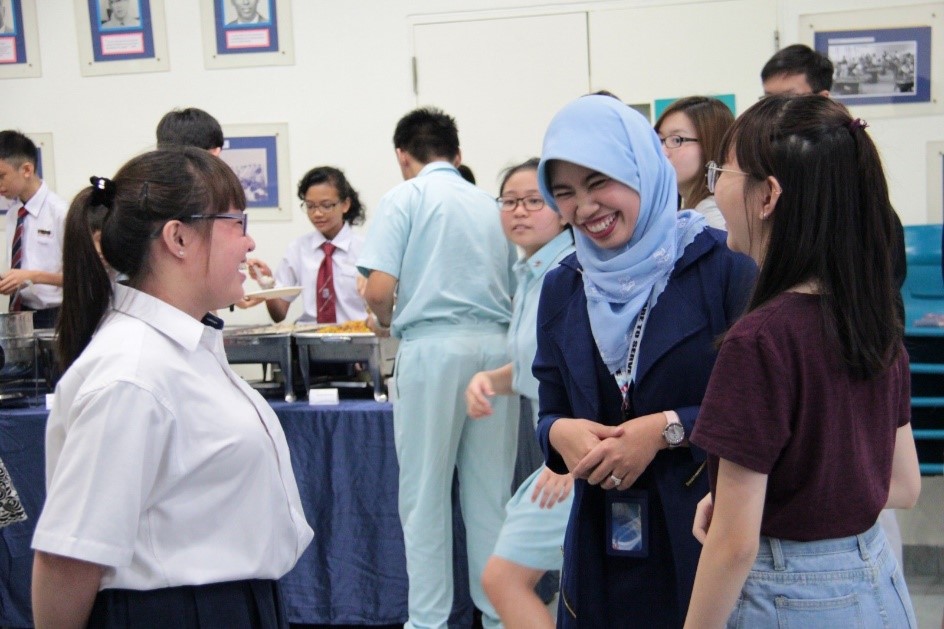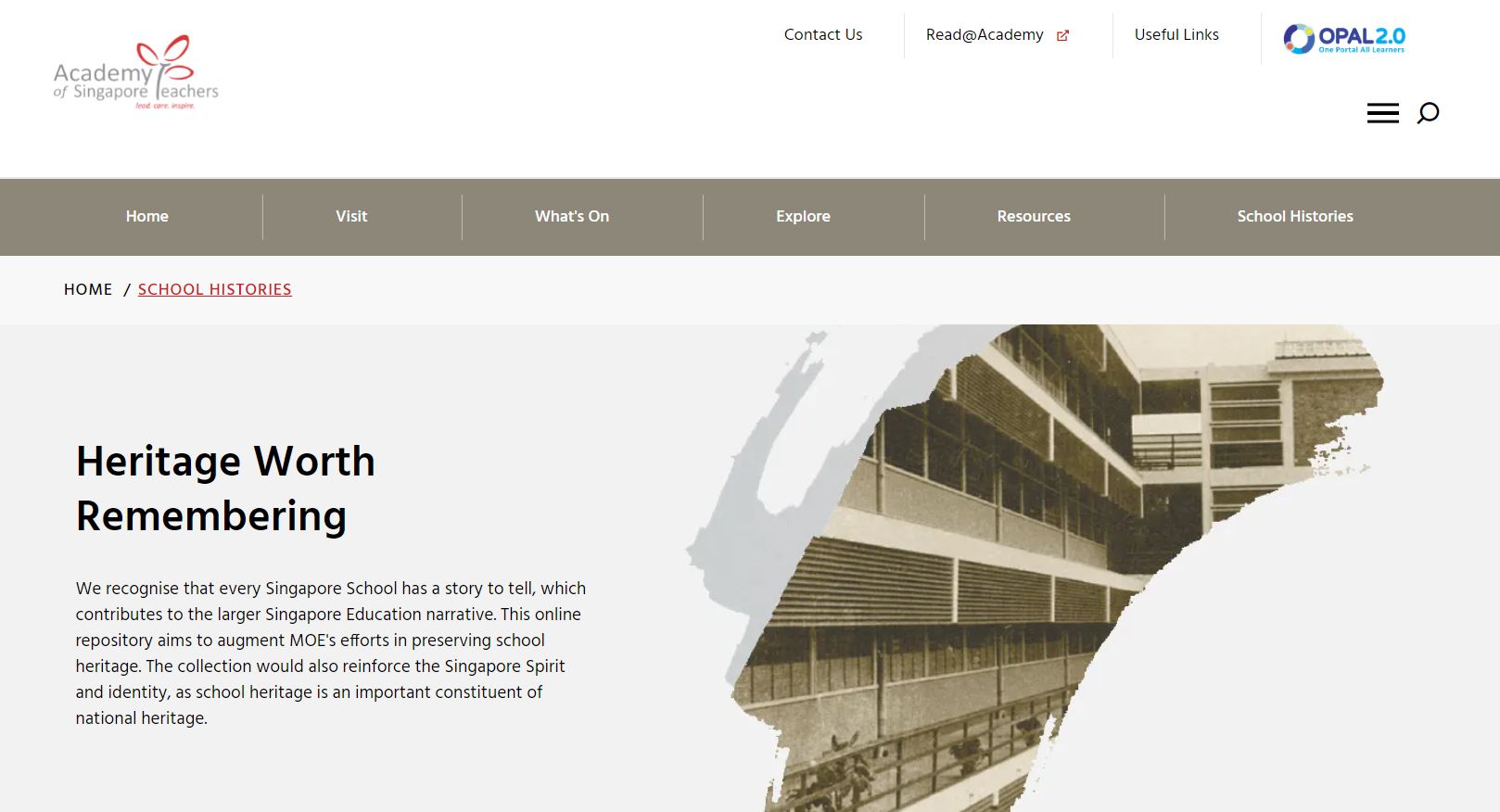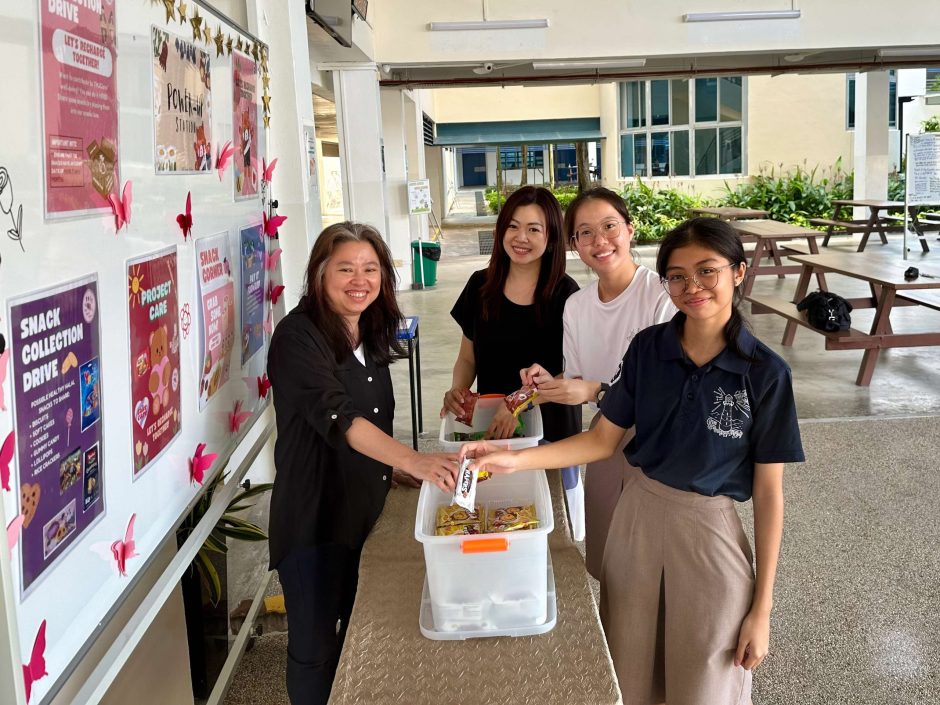Why are the youths of today so fragile? Why are they stressed, anxious…? Our life wasn’t easy, but we just got on with it, didn’t we?
Sound familiar? Once upon a time, I may have agreed, but not anymore. As a teacher and a Principal, I interact with young people every day and I see how they live in a very different world from the one we grew up in – and the pressures that come with it.
A different generation
On the surface, the lives of students today sound similar to ours. They study, take up sports and hang out with their friends – if anything, they seem to have it easier, with many luxuries that we never dreamed of growing up.
But beyond the superficial similarity is a sea-change that has taken place. The environment they inhabit is a lot more complex compared to the one we had as children. Youths today are constantly plugged in and being bombarded by information from around the world. Social media exposes them to many influences, and not all of these are positive.
In the virtual world ruled by ‘likes’ and ‘followers’, there is pressure to live up to certain expectations – in the way you dress, the things you do, the people you hang out with. They are constantly seeing streams of happy photos and beautiful people, but these may not be a good representation of what daily life is like for most people. This can take a toll on impressionable young minds.
There is also the trolling on social media, and negative comments that get amplified. With so much social interaction happening online, youths are constantly being exposed to thousands of voices and opinions.
These pressures can bring on harmful coping strategies, like self-harm.
I look back to our young days and think how sheltered we were compared to youths today.
As our country becomes more affluent, it is easy for us to assume that this generation has it easier. However, there is a group of students who come from difficult family backgrounds, whose parents may be divorced, widowed, abusive, neglectful or incarcerated, for instance. Their issues are invisible to the public eye, and so it can look as if these students are ‘weak’ when they are overwhelmed by a small setback. In fact, it may be only the last in a series of trying situations that trigger a breakdown.
Having come across students who have no one to turn to at home, or who are shunted from one relative to another, I marvel at these young people, who still pluck up the courage and come to school every day despite the baggage they bear. How then, can I imagine them as ‘strawberries’?
Lastly, I like to tell people that this generation has also gone through a different education system, in which they are encouraged to speak up and share their opinion. Instead of rote learning, they are taught to question, think critically, and contribute solutions.
Is it a bad thing then, or even unnatural, that they are also more open to voicing their feelings and concerns?
Perhaps it is time for us adults to listen, and have a conversation with our youths instead of thinking of them as the strawberry generation.
Words that matter
As an educator, when I see the challenges faced by our youths, I am convinced that more than knowledge and skills, we need to equip students with a resilient mindset.
Character and Citizenship Education (CCE) lessons provide a natural platform to discuss this with the students, and I am glad that there is a greater emphasis on mental health and resilience in the refreshed curriculum starting this year. However, these need to be brought to life across different school experiences, outside CCE lessons. Our students need to experience what they hear in the classroom.
So, if the CCE lesson talks about recognising different strengths, they need to hear the same from teachers and parents across different subject lessons and situations. After all, we have an enormous influence over how children perceive themselves. The words we say, matter.
I saw the difference our words can make back when I taught a class in which many students were struggling to pass their subjects. To motivate them, I celebrated every little improvement. Even if it was just one mark, I would praise them for their effort in front of the class. You could see their faces light up with the affirmation, and they worked harder for the next test. Every little success provided the boost they needed to move on to other successes in their lives.
Later, as principal, I came across the Stanford psychologist Carol Dweck’s research on the Growth Mindset. It reaffirmed my belief that we need to help students reframe their mindset to see that their success is not determined by the talent and abilities they are born with. They can always improve with practice, and the right strategies.
This is something we share with all students in Queenstown Secondary. Today, I am glad to hear my teachers use the same language of affirmation in their classrooms. Even more encouraging is when I hear students share about the Growth Mindset with each other!
Celebrating different types of success
We know that not everyone is academically inclined, and it is important for students to find their strengths and path in life. We want to expand their definition of success, such that it does not focus narrowly on grades and academic excellence. This also helps build their resilience as they can draw strength from the other things they do well in and not be overwhelmed by any single failure.
One way we do this in Queenstown Secondary is to recognise students who have overcome personal challenges in their education journey. In fact, our valedictorian for the class of 2019 was a student who took the Normal (Technical) course. We chose her over many other students with outstanding academic achievements because we witnessed how far she had come. Despite having to retake her PSLE, and cope with the loss of her parent in Sec 3, she not only persevered to improve in her studies, she also served as leader of her Uniformed Group CCA. We are so proud of her, and we want all our students to know it.
Across Singapore, all schools offer a wealth of after-school activities, from Co-Curricular Activities (CCAs), to level camps, sports and music enrichment and competitions.
One of our highlights is the Quest Learning Festival, where we bring students on various adventures outside of school. Different levels may be engaged in hiking, dragon-boating, or trying a different sport – like skating. Before COVID, we even brought the whole cohort to Malaysia, to camp and trek. When faced with challenging situations out of their comfort zone, many students would doubt themselves. But most of them would overcome their fears and uncertainties to gain a greater appreciation of what they could achieve with the support of their friends and teachers.
On a more regular basis, our students learn to hone their skills and are recognised for their efforts in their CCAs. When they lose a football match, mess up their parts while performing a song, or hit a roadblock while planning for their CCA camps, their teachers will be there to guide them to bounce back from failure.
The goal of all these activities is not to fill up our students’ time, but to offer them opportunities to discover their strengths and provide them with adequate challenges to overcome, so they can grow in confidence. Of course, having a dedicated time for sport and music is beneficial for their mental well-being too!
It’s a partnership
Equally important is family support. We hope that parents will see schools as their partner when it comes to students’ well-being.
I would urge parents to first acknowledge that mental health issues are real, and not jump to the conclusion that their children are just seeking attention, or being ‘weak’. As a mother myself, I know it is natural for us to think of how we ourselves were raised and expect our children to just ‘deal with it’. But we have to be fair to them and recognise that circumstances have changed.
For a start, parents can acknowledge the emotions that their child is facing and assure them of support at home. We can read up a bit more about the challenges they are facing, or encourage them to talk about their feelings and just be there to hear them out. That said, we do not always need to drop everything and try to solve the problem for them immediately – as mentioned earlier, giving them some space to overcome problems on their own can help build their resilience. We have to find this balance based on what we know of our child.
At our parent-teacher meetings, teachers make a conscious effort to highlight students’ different strengths – for being kind, for being creative, for taking initiative. We hope that parents can speak the same language at home, so students know they are valued for more than their grades.
To the parents who are worried and flustered about the recent conversations about mental health among youths, let me reassure you that your child’s school is your ally. Like your child, you are not alone in this journey.






